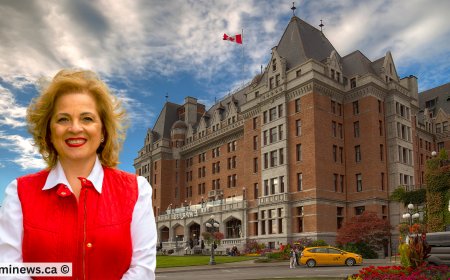Social policy researchers, consultants and program officers Migration to Canada: A Detailed Guide on Salaries, Professional Responsibilities, and Preferred Locations
Welcome to the pathway to Canada immigration for skilled professionals and trade workers. This guide is specifically tailored for Social policy researchers, consultants and program officers looking to work and settle in Canada, offering a deep dive into the essential aspects of immigration and employment in this field.
Introduction
Canada is a country known for its strong economy, diverse culture, and welcoming attitude towards immigrants. For those interested in pursuing a career in social policy research, consulting, or program management, Canada offers a wealth of opportunities. In this article, we will explore the profile of Social policy researchers, consultants, and program officers, NOC code 4164, including their main job duties, educational and licensing requirements, necessary skills, median salary and retirement prospects, as well as potential visa options for those looking to immigrate to Canada for work in this field. By the end of this article, readers will have a comprehensive understanding of the career and immigration prospects in Canada for individuals in the social policy sector.
What is the Profile Description of a Social policy researchers, consultants and program officers as per the Canadian National Occupation Classification (NOC) Standards?
Social policy researchers, consultants, and program officers are professionals who are responsible for conducting research, developing policies, and implementing programs in a variety of social sectors including consumer affairs, employment, immigration, human rights, housing, and family services. They work for government agencies, industry, hospitals, universities, consulting firms, and non-governmental organizations. Some may also work independently. Their work is focused on supporting and improving social welfare and addressing issues that impact individuals and communities.
What are the Main Job Duties of a Social policy researchers, consultants and program officers in Canada?
- Social policy researchers, consultants and program officers develop and propose social programs and policies based on research, analysis, and evaluation.
- Home economists provide consumer advice on the selection and use of food products, textiles, and other goods, as well as teaching household management skills.
- Housing policy analysts assess economic, demographic, and social developments to inform housing policy decisions.
- International aid and development project officers plan and administer foreign aid and international development programs.
- Social survey researchers conduct surveys, analyze data, and compile statistics on social issues, while social services planners develop and assess social programs and services to ensure effective delivery and avoid duplication.
What are the Education, Certifications, and Licensing Requirements to Work as Social policy researchers, consultants and program officers in Canada?
Most positions as social policy researchers, consultants, and program officers require a bachelor's degree or college diploma in a social science or related field, such as business administration. Some employers may also prefer candidates with a master's degree in a relevant field. Home economists typically need a bachelor's degree in home economics, nutrition, family studies, or a related field. Registration as a Professional Home Economist may be required in some provinces. Regulated Canadian immigration consultants must be registered with the Immigration Consultants of Canada Regulatory Council.
What Essential Skills are Required for Social policy researchers, consultants and program officers to succeed in Canada?
In order to be successful in the profession of social policy researchers, consultants and program officers, individuals must possess a variety of essential skills. These include the ability to develop social programs, legislation, and proposals, as well as plan and coordinate social services. Conducting demographic, social and economic analyses, research, and providing advice on consumer goods and daily-life issues are also key skills. Additionally, individuals in this profession must be able to develop and promote new food products, offer advice on food preparation and safety, and participate in retail buying and marketing. They must have the ability to identify and assess economic, demographic, and social developments, report on implications for housing and related social policy, and plan and administer foreign aid and international development policies. Developing questionnaires for social survey research, conducting surveys, analyzing data, compiling statistics on social issues and policy research, preparing research papers and educational texts, and providing consulting services to government and other organizations are all important skills. Finally, delivering presentations at conferences, workshops, and symposia is crucial for success in this field.
What is the Median Age and Retirement Age for Social policy researchers, consultants and program officers in Canada?
It is quite common for skilled professionals working as social policy researchers, consultants, and program officers to have a median age of 42 years, indicating a mid-career stage in their professional lives. Despite this, the average retirement age for individuals in this field is 63 years, suggesting that many in this profession choose to work well into their senior years. This may be due to a passion for their work, a desire to continue making a difference in their field, or simply a need to maintain financial stability. Regardless of the reasons, it is clear that these professionals value their careers and the impact they can make through their work in social policy research and advocacy.
How many job openings exist for Other Social policy researchers, consultants and program officers in Canada, and what's their provincial distribution?
There are a total of 81 job openings in Canada for the profile of Social policy researchers, consultants, and program officers. Among the provinces, Québec has the most job openings with 46 positions available, followed by Ontario with 18 openings. British Columbia has 7 job openings, Alberta has 4, and Manitoba, Nova Scotia, Prince Edward Island, and Saskatchewan each have 1 job opening. Québec has the maximum number of job openings, while Manitoba, Nova Scotia, Prince Edward Island, and Saskatchewan have the minimum number of job openings. Overall, there are several opportunities for individuals interested in pursuing a career in social policy research, consultancy, and program management across various provinces in Canada.
What is the hourly wage or salary of Social policy researchers, consultants and program officers in different Provinces of Canada?
In Canada, Social policy researchers, consultants, and program officers earn varying wages depending on the province in which they work. The highest wages for this profession are found in Alberta, with a high wage of $53.19 per hour. Alberta is followed closely by Manitoba, Ontario, and Quebec, all with high wages exceeding $50 per hour. On the other hand, the lowest wages for this profession can be found in New Brunswick, with a high wage of $42.56 per hour. The median wages for Social policy researchers, consultants, and program officers also vary by province, with British Columbia having the lowest median wage at $30.00 per hour and Alberta having the highest median wage at $45.67 per hour. Overall, Social policy researchers, consultants, and program officers in Canada can expect to earn competitive wages, with the potential for higher earnings in provinces such as Alberta, Manitoba, Ontario, and Quebec.
What are the various visa options available for Social policy researchers, consultants and program officers migrating to Canada?
Social policy researchers, consultants and program officers have a variety of visa options available to them in order to migrate to Canada. One popular choice is the Express Entry Visa Category, which is a point-based system that allows skilled workers to apply for permanent residency. Additionally, the Provincial Nominee Programs offer pathways for individuals with specific skills and work experience to apply for permanent residency in a particular province or territory. Social policy researchers, consultants and program officers may also consider Employer Sponsored Work Visas, which allow them to work in Canada for a specific employer for a set period of time. It is important to note that there may be other visa options currently open for individuals in this profession. To learn more about your visa options and discuss your migration plans in detail, book an appointment with our professionals today.
Have Questions or Need Assistance?
If you have any queries or require assistance with your immigration plans, we're here to help. Our experienced immigration consultants are ready to provide personalized guidance tailored to your specific needs.
Don't hesitate to reach out and schedule an appointment today. Whether you're seeking clarification on immigration processes, exploring visa options, or need support with documentation, we're dedicated to assisting you every step of the way.
Book an appointment with our team to discuss your immigration goals and receive expert guidance for your journey to Canada.
What's Your Reaction?
 Like
0
Like
0
 Dislike
0
Dislike
0
 Love
0
Love
0
 Funny
0
Funny
0
 Angry
0
Angry
0
 Sad
0
Sad
0
 Wow
0
Wow
0







































































